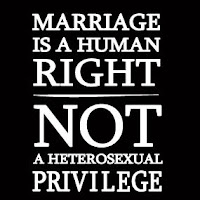Marijuana used to be legal. It used to be legal in a lot of places, and it was legal in the United States until about the 1930s when some people (Harry Anslinger among them) decided it was time to start reforming society as a reaction to the "Roaring Twenties."
Today, however, pot is illegal, as we all should be aware. In some places, it is acceptable to use it for medicinal purposes, but nowhere is recreational use permitted.
Why is this the case? According to an article on about.com, there are
seven main reasons:
1. It is perceived as addictive.
2. It has "no accepted medical use."
3. It has been historically linked with narcotics, such as heroin.
4. It is associated with unfashionable lifestyles.
5. It was once associated with oppressed ethnic groups.
6. Inertia is a powerful force in public policy.
7. Advocates for marijuana legalization rarely present an appealing case.
This may be all well and good for some people. Actually, it is all well and good because there are plenty of people who believe marijuana should remain illegal. I am not one of them. As such, I will attempt to refute each point based on my opinion, or at least pose a question to possibly make someone reconsider.
1. Alcohol is also thought to be addictive, but as the Constitution proves, Prohibition was a failed movement. Just because something is addictive (and I don't believe marijuana is) does not mean it should be illegal. People cannot get proper help when they have an illegal addiction, so how is that going to solve anything?
2. As far as I know, people used marijuana for centuries to help alleviate pain; women even used it for menstrual cramps. Today, cancer patients are allowed to take it in some states, and they aren't complaining -- nor are they addicted.

3. Marijuana is classified as a Schedule 1 drug, meaning that there's a high risk for its abuse. So in that way, yes, it is linked to other more dangerous narcotics like heroin, but the physiological effects of marijuana (cannibis) and heroin differ:
4. Ah, the lifestyle of the arts. Or the poor. Or the upper-class, white-collar family. Drugs bridge the gaps between ways of life that other things cannot. Stereotyping should never be a valid argument.
5. Oppressed ethnic groups? Maybe if they weren't oppressed, they wouldn't have felt the need to abuse drugs. But I'm sure even while they're oppressed, others were using marijuana too, they just were less likely to admit to it and consequently hid it better.
6. Intertia IS powerful in poltics, and people are afraid of change. But sometimes the status quo needs to be pushed. We wouldn't be where we are today if it wasn't. I've heard rebuttals stating that if we legalize marijuana, everyone would be getting high, and it would certainly be abused. I would say I agree, in some ways. Americans lack self-control in many cases, sadly, and I feel this would be one instance in which they take their hypothetical newfound liberty to an extreme. But on the other hand, the fatality rate of marijuana is nowhere close to heroin. And imagine the economical benefits that would come out of this new taxable market, given the current situation of our economy. Money is often a good incentive.
7. All I have to say about this is Well, I'm sorry you don't find relieving a cancer patient's pain appealing. That's cold.










